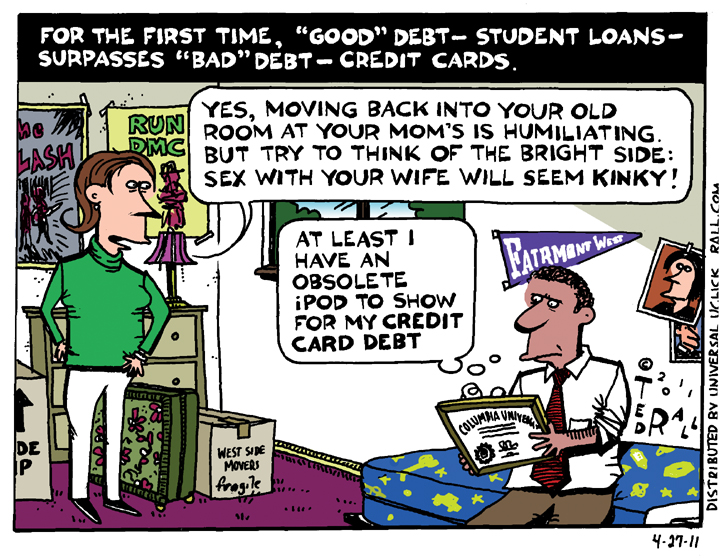Why Doesn’t the Pentagon Let Its Employees Be All They Can Be?
The U.S. military isn’t supposed to allow child soldiers to enlist (though reality can differ). So why does it treat recruits like children?
Other than religious avocations, it’s impossible to think of another major employer that asks as much of prospective workers as the Pentagon, yet offers so little. Salaries are lower than for comparable private-sector jobs. The skills one acquires don’t translate easily to other fields. The risks couldn’t be higher. But most baffling, for a force supposedly dedicated to defending our freedom, is that they get little freedom of their own.
You’ve heard the drill sergeant line in movie boot-camp scenes: “You are now the property of the United States of America.” That’s true. Once signed up, soldiers and sailors can be assigned anywhere, to any job, completely at their commanders’ discretion. Sometimes they take your skills, desires or ambitions into consideration. Not always.
Active duty, recruiters tell young men and women, lasts two to five years — after which they’re supposed to wind up in the reserves, free to go home unless there’s a national emergency. But the President can invoke the “stop-loss” provision, which means you can get stuck as long as eight.
It’s time for the military to catch up to the modern workplace.
American workers are getting more of a raw deal in many ways: lower wages and benefits, companies that ignore the federal Fair Labor Standards Act, no more pensions. Yet the fraying of the postwar labor-management social contract has also provided employees with greater flexibility. You may have to work three crappy jobs to make ends meet, but crappy jobs are easy to replace. You can move to another city and probably find three crappy jobs there. You certainly don’t have to worry about one of your crappy employers shipping you off to Afghanistan, much less coming home in a coffin.
The military’s insistence on treating its workers like property to be disposed of at whim is obsolete, making it increasingly difficult — even in a high-unemployment economy — to compete for recruits.
One example making recent headlines is the Air Force’s increasingly severe shortfall of fighter pilots. A new signing bonus totaling nearly a quarter million bucks (albeit spread over nine years), isn’t enough to compensate for starting salaries ($34,500 to $97,400) — not when the airlines are paying a median salary of $103,210 to commercial jet pilots. Nor are benefits like lower taxes and on-base housing.
“The military is difficult on the family with all the moving around,” Rob Streble, a former Top Gun and an official of the union that represents US Airways pilots, told The Los Angeles Times. “I added more stability by joining the airline.”
“People have no idea how hard it is when you have to move your family all the time,” admits John Wigle, a former F-15 pilot who is now a program analyst in the USAF’s operations, plans and requirements directorate.
Freedom was a determining factor for me.
The recruiter manning the desk at the Army Recruiting Office in Kettering, Ohio was way into me when I walked through the door at age 18. I had what they’re looking for: I was human, sentient, and ambulatory. I was also a catch: a straight-A engineering student who’d gone to an Ivy League school on full scholarship. When Reagan slashed financial aid for me and millions of other college students, I considered other options.
I aced the Army aptitude test. This didn’t surprise me, considering the lugs sitting in the test center next to me. Anyway, I test great. I drew the attention of a big über recruiter for the entire Midwest who wouldn’t stop calling. He made a lot of promises. We’ll fast-track you for officer! When you get out, we’ll pay your college tuition! What’s that, you want to draw cartoons for Stars and Stripes, just like Bill Mauldin during World War II? Sure, why not?
As a child of divorce, I’d learned to get promises in writing. Which, of course, military recruiters can’t and won’t do. (At the time, the Army paid “up to” $5,000 a year for college. Columbia was $13,000.) Sure, despite Reagan’s efforts, we weren’t at war. So getting killed was unlikely. But they could send me anywhere in the world, assign me to any job they wanted (from a military website today: “The Military will make every effort to match your interests and aptitudes with its needs. However, job assignments are ultimately made based on Service needs, as well as individual skills and test scores”), and the bottom line was, there’d be nothing I could do but salute and say yessir. That was the end of my flirtation with a military career. I wanted the basic freedom to choose where I lived and what I did for work.
I’m not alone. 89% of young Americans say they’d never consider a military career.
It will be a bummer for military officers, by temperament the biggest control freaks ever, but sooner or later they’re going to have to face reality: slavery is over. If you want to find quality sailors and soldiers, you have to treat them like adults. Let recruits choose their positions and where they live. Act like they’re workers. Which they are. For example, why can’t soldiers put in for vacation as opposed to applying for leave? If their chosen job is no longer needed, fine — they should be free to go. Yes, even during wartime — at least during the optional wars of choice the United States has fought since 1945.
During an invasion or serious attack against the U.S. by another nation, obviously, all bets are off. But don’t worry — that hasn’t happened since 1812.
(Ted Rall’s website is tedrall.com. His book “After We Kill You, We Will Welcome You Back As Honored Guests: Unembedded in Afghanistan” will be released in 2014 by Farrar, Straus & Giroux.)
COPYRIGHT 2013 TED RALL

